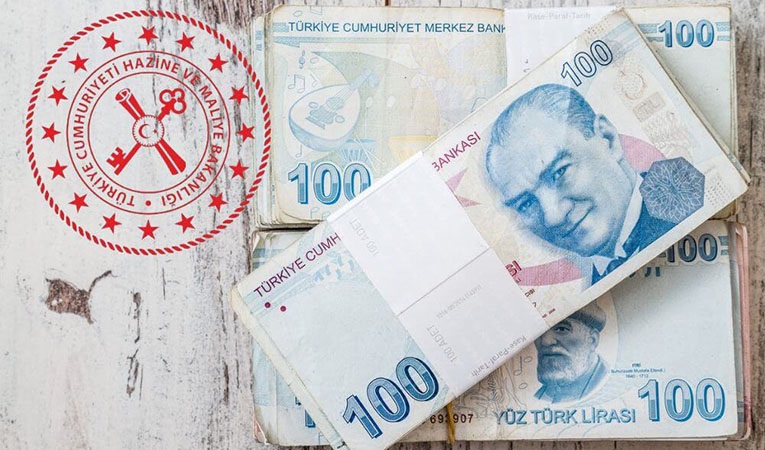
-
BIST 100
 9393,79%0,00En Düşük9383,77En Yüksek9492,29
9393,79%0,00En Düşük9383,77En Yüksek9492,29 -
DOLAR
 38,11%0,08Alış38,1089Satış38,1177En Yüksek38,2409
38,11%0,08Alış38,1089Satış38,1177En Yüksek38,2409 -
EURO
 43,53%1,32Alış43,5117Satış43,5576En Yüksek43,6012
43,53%1,32Alış43,5117Satış43,5576En Yüksek43,6012 -
EUR/USD
 1,14%0,73Alış1,1364Satış1,1365En Yüksek1,1385
1,14%0,73Alış1,1364Satış1,1365En Yüksek1,1385 -
ALTIN
 4029,02%1,89Alış4028,49Satış4029,55En Yüksek4034,04
4029,02%1,89Alış4028,49Satış4029,55En Yüksek4034,04
-
BIST 100
 9393,79%0,00En Düşük9383,77En Yüksek9492,29
9393,79%0,00En Düşük9383,77En Yüksek9492,29 -
DOLAR
 38,11%0,08Alış38,1089Satış38,1177En Yüksek38,2409
38,11%0,08Alış38,1089Satış38,1177En Yüksek38,2409 -
EURO
 43,53%1,32Alış43,5117Satış43,5576En Yüksek43,6012
43,53%1,32Alış43,5117Satış43,5576En Yüksek43,6012 -
EUR/USD
 1,14%0,73Alış1,1364Satış1,1365En Yüksek1,1385
1,14%0,73Alış1,1364Satış1,1365En Yüksek1,1385 -
ALTIN
 4029,02%1,89Alış4028,49Satış4029,55En Yüksek4034,04
4029,02%1,89Alış4028,49Satış4029,55En Yüksek4034,04
- Anasayfa
- Haberler
- Tüm Haberler
- Conjuncture
Conjuncture
ECONOMIC ASPECTS OF THE EU PROJECT Despite the conditions related to the Cyprus issue, Turkey has entered a new era, as the European Union (EU) decided on a date for the launching of accession neg...
ECONOMIC ASPECTS OF THE EU PROJECT
Despite the conditions related to the Cyprus issue, Turkey has entered a new era, as the European Union (EU) decided on a date for the launching of accession negotiations from the European Union (EU). The accession negotiations are expected to last about 10 years. Though we wish for a shorter negotiation process, all concerned parties argue that Turkey’s EU membership cannot be realized earlier than 2014.
However, as it became more apparent during the EU summit of December 16-17, the EU is not too enthusiastic about accepting Turkey’s membership. Our big population, our big and under-educated army of unemployed, our low per capita income and our unstable economy cause the European people to see Turkey as a burden. Thus, it may be thought that, even minor economic troubles to be experienced during the negotiations could be used to postpone Turkey’s membership further.
Under these circumstances and in order to become a member in 2014, Turkey needs to develop an “EU project” concerning the economy. Such a project should include targets aimed at improving the Turkish economy considerably within 10 years and reducing the fears of the public opinion in the EU. On the other hand, in order to realize such targets, we have to work hard as a nation.
In fact, three major economic targets have already been formulated by the EU. Those targets, called the Maastricht Criteria, are known now by almost everyone. However, it is also clearly seen that the fulfillment of those criteria could not be sufficient for Turkey. In order to become an EU member in 2014, Turkey has to bring its national income closer to the EU levels through reaching high growth rates, reduce its army of unemployed radically, increase the education level of its population and continue to reduce the population growth rate.
Let’s examine the major targets of the EU projects and their possible effects.
The prosperity gap should be narrowed
One of the main reasons of the coldness of the European public opinion against Turkey is our very low per capita income level. In nominal dollar terms, our per capita income is not higher than 12.5 percent of the EU-15 average. Even when we use the purchasing power parity, which gives a more realistic picture, the fact that there is a big prosperity gap between Turkey and the EU does not change. According to the latter measure, our per capita national income is 26.5 percent of the EU average.
That level is lower than the 10 countries that became members of the EU in 2004 and Romania and Bulgaria, which are almost certainly going to become EU members earlier than us. Since the EU is allocating development funds for low-income countries, many people justly think that Turkey will be a big burden for the union.
We will not be able to change this opinion without raising the ratio of our per capita national income to the EU average by at least 10 points within the next 10 years. If we achieve that target, fears about the burden of Turkey’s accession will be diminished.
The attractiveness of the Turkish market
Despite our low per capita national income level, in terms of our total national income, we are among the world’s leaders. Therefore, the Turkish market is attractive for every country. And that is one of the factors hindering the EU from saying a definite “no” to Turkey.
In terms of purchasing power parity, Turkey’s total national income is at $515 billion. The ratio of that amount to the total national income of the EU is calculated to be 5 percent.
If our total national income doubles in the next 10 years in terms of purchasing power parity, the Turkish market will become much more attractive for the EU. In this case, the Turkish economy will become the fifth biggest one in the European Union, following Germany, France, Great Britain, Italy and Spain. The membership of such a big economy will be a cure for the EU, of which domestic market is decreasing since its population is no more growing, and which is experiencing competition problems with regard to its exports as well. Furthermore, the European laborers who are afraid of the competition of our labor force today will lift their veto on Turkey’s membership, since they will only be able to maintain their jobs thanks to the demand to be created by new markets.
The growth rate has to be doubled
 In the last 10 years, Turkey’s growth rate averaged to 3.8 percent, compared to EU’s average annual growth rate of 2 percent in the same period. However, since our population grew by 1.6 percent annually in the same period, compared to EU’s population growth rate of 0.5 percent, the prosperity gap has narrowed just slightly.
In the last 10 years, Turkey’s growth rate averaged to 3.8 percent, compared to EU’s average annual growth rate of 2 percent in the same period. However, since our population grew by 1.6 percent annually in the same period, compared to EU’s population growth rate of 0.5 percent, the prosperity gap has narrowed just slightly.
If Turkey continues to grow by this rate after entering the EU, the per capita national income level will not reach the EU average earlier than 193 years. Such a long development process of a member state will obviously form a real threat to EU’s budget.
However, if Turkey reaches an average annual growth rate of 7 percent, the per capita national income will catch up the EU average in 32 years. If such a performance level can be reached in the next 10 years, the post-membership development process will be much shorter. In such a case, the number of those who think that Turkey’s membership will be an opportunity rather than a burden will increase and their position will become stronger.
THE ECONOMIC CALENDAR OF 2005
JANUARY
The most important event of the new year will be the introduction of the New Turkish Lira (YTL). From January 1, 2005 on, the YTL banknotes will be in circulation.
The inflation rates of 2004 will be released on January 3, 2005. The December consumer inflation rate is expected to be about 1 percent. In this case, the 2004 figure will be close to the end-November figure (9.8 percent).
 Since some companies will adjust their prices at the beginning of the new year and because of the “rounding effect” to be caused by the introduction of the YTL, the inflation rate will increase in January. In the first month of 2004, a double-digit annual inflation rate may be recorded.
Since some companies will adjust their prices at the beginning of the new year and because of the “rounding effect” to be caused by the introduction of the YTL, the inflation rate will increase in January. In the first month of 2004, a double-digit annual inflation rate may be recorded.
Increases in the wages and salaries of public sector workers and servants and private sector employees will affect the domestic demand positively.
FEBRUARY
The old stand-by agreement will expire and the new 3-year stand-by agreement will come into force. The new stand-by agreement will help Turkey concerning its heavy foreign debt burden.
The monthly industrial production index to be released on February 8, 2005 will show the annual rate of increase in industrial production in 2004. Thus, the first realistic estimates about the growth rate of 2004 will be made from that date on.
Foreign trade figures of 2004 will be released. Import and export data and the level of the current account deficit will allow 2005 forecasts to be revised.
MARCH
The inflation rates were low in the first months of 2004. Therefore, in the first months of 2005, higher inflation figures may be recorded and the annual inflation rate may increase. The economy management has to make the people aware that this is temporary.
Because of winter conditions, the decline in domestic demand and the delay in investments to spring months, the volume of economic activity will remain low in the first months of the year. Meanwhile, because of the big recovery experienced in the same period of 2004, the “basis effect” as well will hinder growth. The growth rate may decline to levels below 4 percent in the first quarter.
The growth rate of 2005 will be released on the last day of March. That rate will most probably be at about 8-9 percent.
THE APPOINTMENT WITH THE EU
OCTOBER
Accession negotiations with the EU will be launched. However, as a precondition, Turkey has to include the Greek section of the Cyprus to the customs union. In that period, new demands from the Greek Cypriots may raise the tension. Nevertheless, since neither EU nor Turkey wants to break off relations with each other, a middle course may be found in order to initiate negotiations.
 The budget and economic program for 2006 will have been prepared. The 2006 budget draft will be submitted to the parliament latest on October 17 at latest. On the other hand, the “2005 Program” will published in the Official Gazette in October or in November.
The budget and economic program for 2006 will have been prepared. The 2006 budget draft will be submitted to the parliament latest on October 17 at latest. On the other hand, the “2005 Program” will published in the Official Gazette in October or in November.
Due to seasonal demand, a higher inflation rate will be recorded in October. The October inflation rate will be close to the September inflation rate.
NOVEMBER
Together with the seasonal decline in domestic demand, the monthly inflation rate will decrease too. The November inflation rate will be lower than 1 percent. If the inflation targets for the year 2005 can be reached, the annual inflation rate will be about 9 percent by end- November.
The seasonal decline in tourist revenues will reduce supply in the FX market. Towards the end of the year, reverse transactions will increase the demand for foreign exchange. However, since the initiation of accession negotiations with the EU will support foreign capital inflows, no serious problems are going to be experienced in the FX markets.
DECEMBER
Negotiations in the parliament about the 2006 budget draft will be finalized. The 2006 budget law will be published in the Official Gazette on the last day of the year, at latest, and come into force on the first day of 2006.
The initiation of accession negotiations with the EU may boost foreign investments in the last quarter of the year. Together with the increase in domestic investments, a growth rate higher than 5 percent may be recorded in the last quarter. The growth target for 2005 can only be reached in that case.
The Turkish Lira will come out of circulation. The last Turkish Lira banknotes will disappear and the days with many zeros will become a part of history. It will be possible to convert the Turkish Lira banknotes into New Turkish Lira banknotes at the branches of the Central Bank during the following 10 years.
Türkiye ve dünya ekonomisine yön veren gelişmeleri yorulmadan takip edebilmek için her yeni güne haber bültenimiz “Sabah Kahvesi” ile başlamak ister misiniz?






